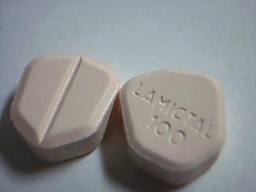Lamotrigine Effective Adjunct for Lithium in Bipolar Disorder
 In a long-term study of bipolar patients taking lithium published in Bipolar Disorders last year, the addition of lamotrigine (or paroxetine for those who did not respond to lamotrigine) was significantly better than the addition of placebo. Patients taking lamotrigine with lithium averaged 10 months until a recurrence of a depressive or manic episode, while patients taking placebo with lithium averaged 3.5 months until an episode.
In a long-term study of bipolar patients taking lithium published in Bipolar Disorders last year, the addition of lamotrigine (or paroxetine for those who did not respond to lamotrigine) was significantly better than the addition of placebo. Patients taking lamotrigine with lithium averaged 10 months until a recurrence of a depressive or manic episode, while patients taking placebo with lithium averaged 3.5 months until an episode.
Lithium Linked to Longer Lifespan in Humans (and Worms)
 An article published in the European Journal of Nutrition last year suggests that higher trace levels of lithium found naturally in drinking water in some environments are linked to longer lifespans. The authors conclude that lithium has some anti-aging properties.
An article published in the European Journal of Nutrition last year suggests that higher trace levels of lithium found naturally in drinking water in some environments are linked to longer lifespans. The authors conclude that lithium has some anti-aging properties.
We’ve written before about the cognitive benefits of small doses of lithium.
Trans-Fats Linked to Depression Risk
 Research published last year showed that people with diets that contain high amounts of trans-fats are at greater risk for depression than people with diets higher in monounsaturated fatty acids (MUFAs) and polyunsaturated fatty acids (PUFAs).
Research published last year showed that people with diets that contain high amounts of trans-fats are at greater risk for depression than people with diets higher in monounsaturated fatty acids (MUFAs) and polyunsaturated fatty acids (PUFAs).
Medscape Medical News reported some tips from lead author of the study, Almudena Sánchez-Villegas, PhD: “The results were not surprising [and] I think the message is clear: ‘try to eat healthy.'”
“Avoid some types of fats, such as trans and saturated fatty acids, and increase the intake of polyunsaturated and monounsaturated fat; it’s better to consume olive oil than margarine or butter, better to use low-fat dairy than high-fat dairy, and better to eat fish than to consume meat or meat products; avoid fast and processed foods and commercial bakery; and try to increase your consumption of fruits, vegetables, and nuts,” she said.

